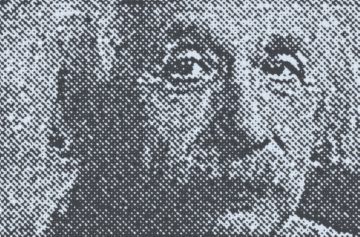Stanley Deser in Inference Review:
 I HAVE RECENTLY REREAD Kenneth Clark’s Rede Lecture, delivered at Cambridge in 1970, on artists and writers as they grow old. He drew some surprising conclusions: the writers were less likely to carry on, whereas some of the greatest artists, Michelangelo, Titian, Rembrandt van Rijn, J. M. W. Turner, Paul Cézanne, Claude Monet, Henri Matisse, and in our day, Pablo Picasso and Jasper Johns, became, if anything, more productive and liberated from convention as they went into old age, despite the physical effort involved. Clark did not really give the whys of the old—in both senses—masters’ endurance as against the poets’ falling off.
I HAVE RECENTLY REREAD Kenneth Clark’s Rede Lecture, delivered at Cambridge in 1970, on artists and writers as they grow old. He drew some surprising conclusions: the writers were less likely to carry on, whereas some of the greatest artists, Michelangelo, Titian, Rembrandt van Rijn, J. M. W. Turner, Paul Cézanne, Claude Monet, Henri Matisse, and in our day, Pablo Picasso and Jasper Johns, became, if anything, more productive and liberated from convention as they went into old age, despite the physical effort involved. Clark did not really give the whys of the old—in both senses—masters’ endurance as against the poets’ falling off.
This led me to consider my own field: physics, mostly theoretical. Of course, Clark was an eminent art critic and historian, while I am only a geriatric working stiff, whose life as a researcher gives me a technical appreciation of my field. Physics has its historians, but if there are physics critics in the same sense as art critics, then I am, perhaps wrongly, unaware of them.
Physics’s greatest giants either died young, as did James Clerk Maxwell at age 48, or stopped meaningful work well before they died, as in the cases of Isaac Newton, Albert Einstein, Niels Bohr, Werner Heisenberg, Paul Dirac, and Max Born, or changed fields, like Erwin Schrödinger.
More here.
